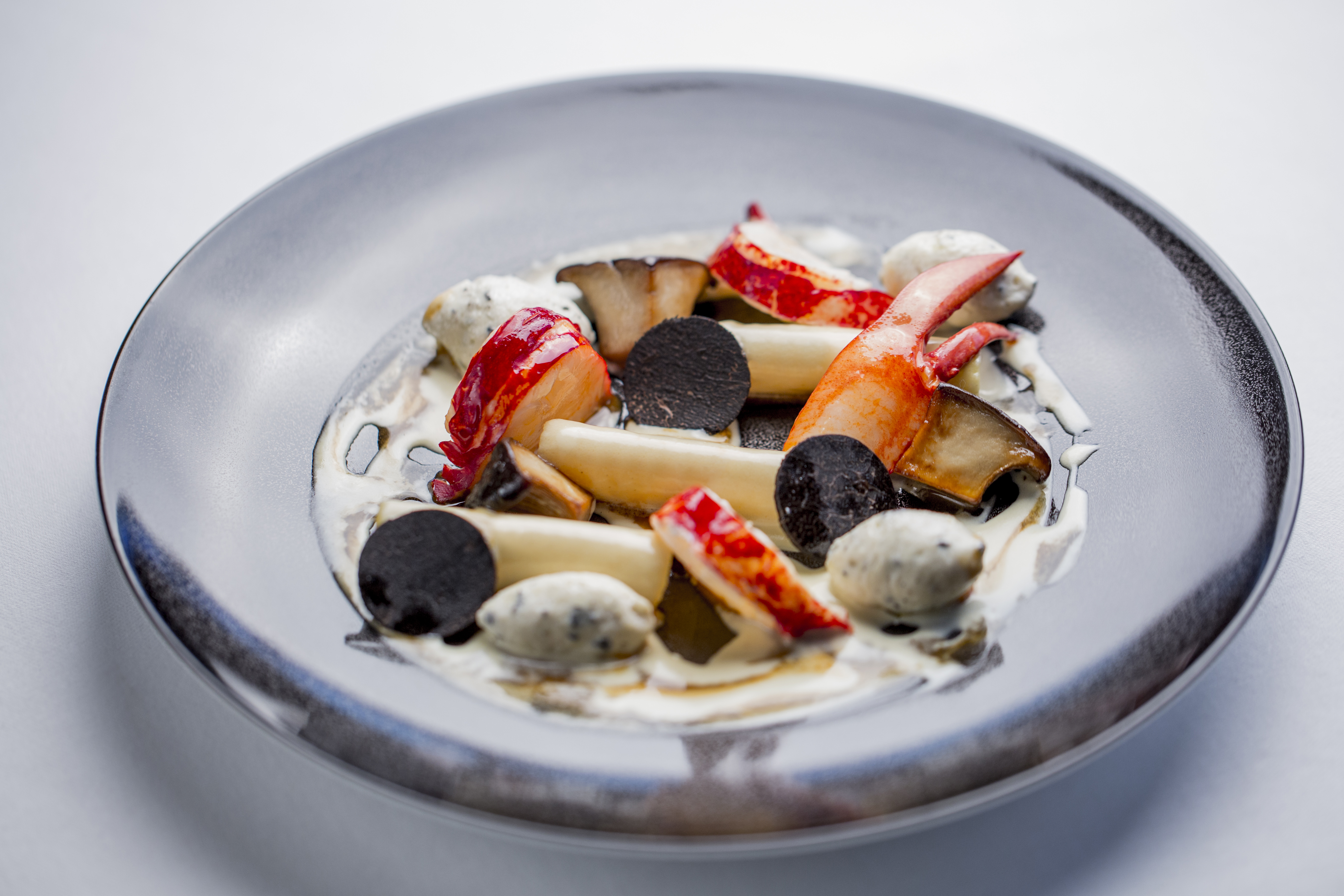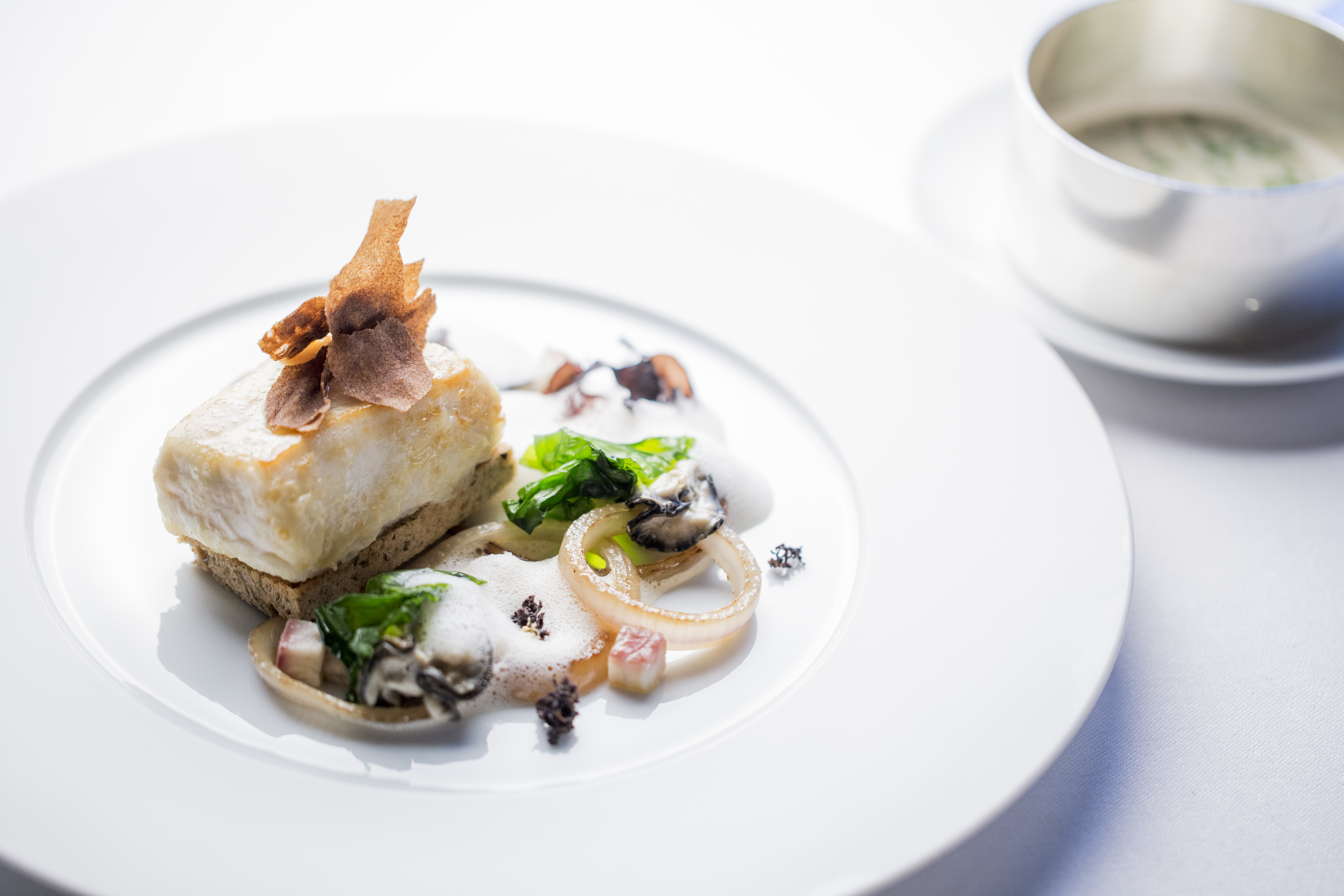different flavours in her cooking – sausages, Roscoff onions and oysters. When I created this dish, I really tried to bring French and British inspirations together, combining the ingredients from both to create something delicious and unique.
Info bar
Dream restaurant –
My dream restaurant would incorporate three very different concepts in one place; a larger brasserie, a small fine dining space, and a lively bar. Ideally, my dream restaurant would be in a big city, with a well-established and dynamic food scene and a variety of different influences and cultures coming together – somewhere like London, Singapore or New York. The brasserie would be casual, and serve traditional simple homemade fare. I see it as the heart of the restaurant. The fine dining concept would be a little different, and much smaller than most restaurants. I'm thinking of a maximum of 4 tables. It would be so immensely popular that it would be filled up 2 years in advance, though, I think that might be every restaurant owner’s perfect scenario. Lastly there would be the bar, a hive of excitement, with great cocktails, amazing music, and a chic but funky undertone.
Dream Brigade –
That’s very simple, it is the brigade that I have with me now. My team is so committed and dedicated. I feel very lucky to have them with me on a daily basis.
How does it feel to be one of the select few restaurants in the UK with the coveted three Michelin stars?
It’s an amazing feeling, but you can never take it for granted. We have extremely high standards and all our guests deserve the three star experience. The pressure to provide this consistency every day is always there, and it goes for everything – the quality of the food, the service. It is the most difficult thing; from checking the quality of the produce we receive to the final plate sent to each guest throughout a 70 cover service. Every day is different and you need to be innovative as well, you need to continually keep pushing. On one hand, it’s very nice, I’ve just achieved one of my dreams to become a three Michelin star chef, but on the other hand, there is that pressure to stay at that level.
Can you tell me about your daily responsibilities at Alain Ducasse at The Dorchester?
As I previously mentioned, checking the quality of the produce and building the relationships with the suppliers are very important. I spend a lot of time speaking to my staff about ingredients, our philosophy and cuisine, but, also about their life, which is very important. We spend the majority of our time together – I spend much more time with my team than I do with my family! The brigade is big; we have 24 chefs in total. So my time is split between the daily operations, my team, and creating and implementing new menus. As we create new dishes all the time, it is important for me to share my knowledge with my brigade, which ensures we feel secure in everything we do.
What advice would you have for a young chef looking to achieve the same success?
Firstly, it would be to take your time. Nowadays, I see young chefs who are very impatient and want to progress too fast. Progress is good, however progressing too quickly is not! Some people will need more time than others to fully master a position before moving up the ladder. It is very important to have the right foundations to be able to succeed. It’s like a building, if you do not build on solid foundations, the building will collapse. Take the time, step by step, and don’t be afraid to put in hard work and commitment. If you are not fully committed to the job, it will become too difficult. Passion is key as it will make your job easier. You need to always be positive too - when you have a problem, there is always a solution.
What are your plans for the future?
I plan to continue my journey at Alain Ducasse at The Dorchester. When Jocelyn Herland left, it became my turn to step up to the challenge of Executive Chef. After 13 years of working hard and finally achieving my dream of 3 Michelin stars, I’m very happy. I am looking forward to the year ahead with my team, as we have lots of creative ideas and projects we will be working on.















